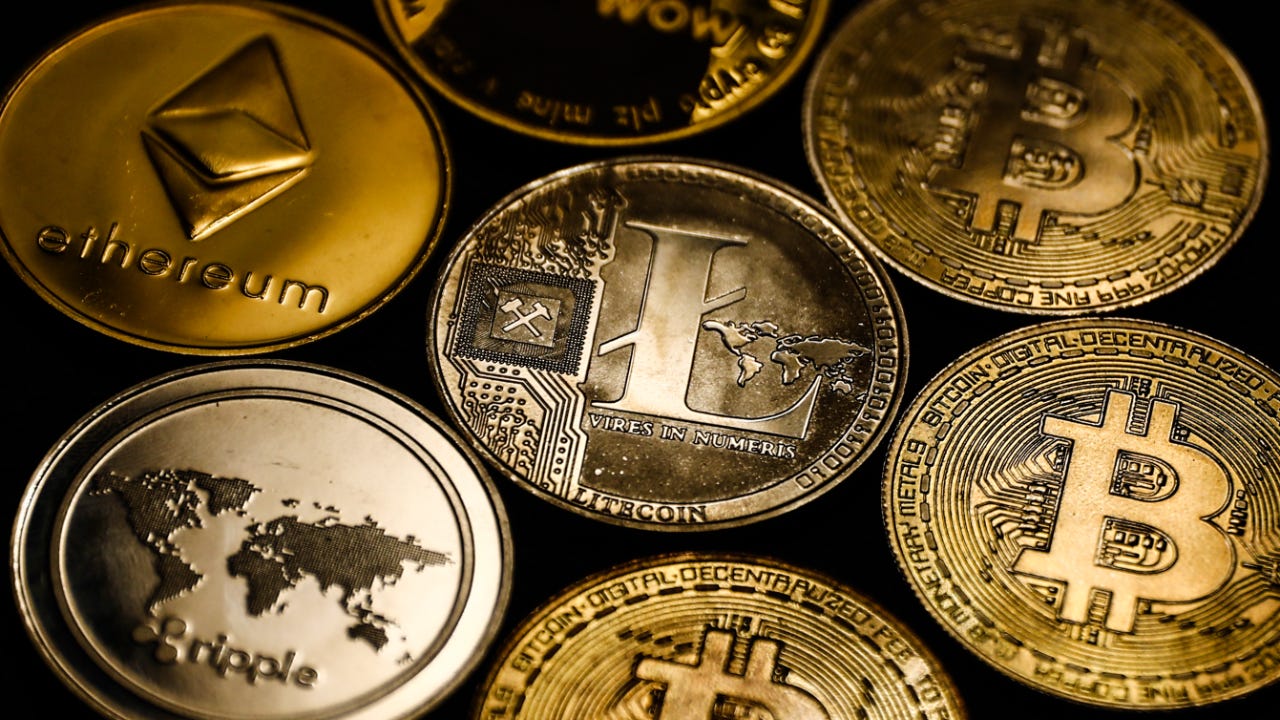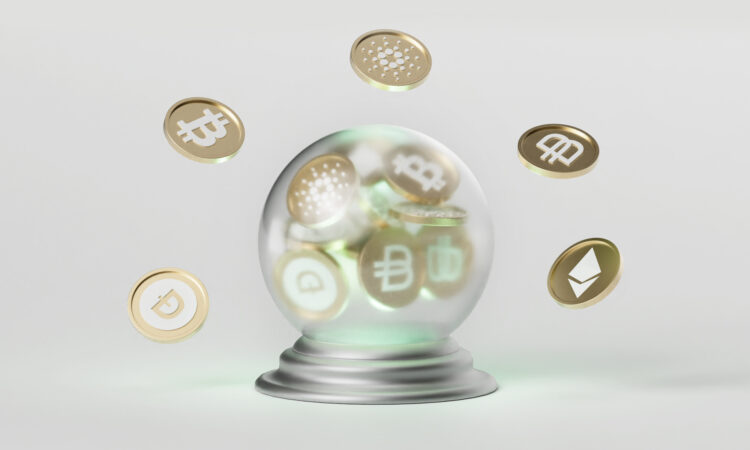The cryptocurrency landscape has evolved significantly over the past decade, raising an important question: Are Altcoins the Future? As Bitcoin continues to dominate market headlines, altcoins – alternatives to Bitcoin – are gaining traction, capturing the interest of investors and tech enthusiasts alike. Altcoins, with their unique features and diverse applications, offer new possibilities for blockchain technology. Nevertheless, with their rising popularity come potential risks and challenges that the market must navigate. To understand the potential future of altcoins, it is crucial to examine expert insights and predictions in this rapidly changing financial arena.
Understanding Altcoins: A Comprehensive Overview
When discussing cryptocurrency, many immediately think of Bitcoin. However, altcoins, which refer to all cryptocurrencies other than Bitcoin, have surged in popularity. But are altcoins the future of digital currency?
Definition and Examples:
Altcoins, short for "alternative coins," encompass a wide range of digital currencies. Some notable examples include:
- Ethereum (ETH)
- Ripple (XRP)
- Litecoin (LTC)
- Cardano (ADA)
Key Characteristics:
Altcoins offer unique features and improvements over Bitcoin, such as:
- Different Consensus Mechanisms: Many altcoins use proof-of-stake (PoS) instead of Bitcoin’s proof-of-work (PoW).
- Enhanced Functionality: Coins like Ethereum provide smart contracts, enabling decentralized applications (dApps).
| Bitcoin | Altcoins |
|---|---|
| First cryptocurrency | Thousands of alternatives |
| Uses PoW | Mix of PoW and PoS |
| Primarily a store of value | Diverse use-cases |
Growing Popularity:
The increasing interest in altcoins stems from their potential use cases and technological advancements. Enthusiasts frequently ask are altcoins the future due to their promise in finance, supply chain, and beyond.
In summarizing, understanding altcoins involves recognizing their definitions, unique characteristics, and the factors contributing to their growing popularity. The question remains: Are altcoins the future of cryptocurrency? The answer might just unfold as the digital currency market evolves.

Key Factors Driving the Popularity of Altcoins
The rise of altcoins, or alternative cryptocurrencies, has reshaped the digital financial landscape. Understanding why these digital currencies have gained traction is crucial when pondering the question, Are Altcoins the Future? Several key factors contribute to their popularity:
Diverse Use Cases: Unlike Bitcoin, which primarily serves as digital gold, many altcoins offer specialized functionalities. For instance, Ethereum facilitates smart contracts, while Ripple focuses on real-time cross-border payments.
Enhanced Privacy: Some altcoins, such as Monero and Zcash, prioritize privacy and anonymity, attracting users who value confidentiality over transparency.
Lower Costs: Transaction fees for certain altcoins are generally lower compared to Bitcoin, making them an attractive option for everyday transactions and micropayments.
Scalability: A number of altcoins address Bitcoin’s scalability issues, offering faster and more efficient transaction processing. For example, Litecoin processes transactions four times faster than Bitcoin.
Community and Developer Support: Strong community backing and continuous technological development also drive altcoin popularity. Active development often leads to improvements, making these coins more versatile and secure.
In addition to these factors, it’s essential to consider that many investors see altcoins as potential growth assets. By diversifying investments into various altcoins, they aim to maximize returns. When asking, Are Altcoins the Future?, these driving forces illuminate why experts believe they hold significant potential.
Potential Risks and Challenges Associated with Altcoins
When contemplating the question "Are Altcoins the Future," it is essential to consider the risks and challenges associated with these digital currencies. Understanding the potential pitfalls can provide a more balanced perspective of their viability.
Market Volatility
Altcoins are notoriously volatile. Their value can spike or plummet within a short period, making them a risky investment option.
Regulatory Uncertainty
- Lack of Regulation: Many altcoins operate in a gray regulatory area, making them susceptible to sudden legal shifts.
- Regulatory Crackdowns: Governments may impose stringent regulations or outright bans, leading to substantial market drops.
Security Issues
- Hacking Risks: Altcoin exchanges are frequent targets for hackers, risking loss of funds.
- Scams: Many investors fall prey to fraudulent altcoin schemes, leading to significant financial losses.
Liquidity Concerns
Some altcoins suffer from low liquidity, making it difficult to buy or sell without affecting the market price.
Technological Challenges
- Development Flaws: Some altcoins may have underlying technological weaknesses.
- Adoption Hurdles: Widespread adoption remains a challenge, as merchants and consumers may be reluctant to accept and use altcoins.
By weighing these risks and challenges, one can better answer whether "Are Altcoins the Future." Although promising, the complexities surrounding altcoins necessitate cautious consideration.
Expert Predictions on the Future of Altcoins
Are Altcoins the Future? This question has sparked considerable debate among financial experts and crypto enthusiasts alike. Let’s dive into some expert predictions to understand the potential trajectory of altcoins.
1. Increased Adoption and Use Cases:
Many experts anticipate that altcoins will see increased adoption in various industries beyond just finance. Altcoins can potentially revolutionize:
- Supply Chain Management: Enhancing transparency and efficiency.
- Healthcare: Improving the security and accessibility of patient records.
- Voting Systems: Ensuring reliable and tamper-proof elections.
2. Evolution of Technology:
As blockchain technology advances, altcoins are expected to leverage these improvements. Predicted technological advancements include:
- Scalability Solutions: Facilitating mass adoption.
- Interoperability: Enabling different blockchains to work together seamlessly.
3. Regulatory Environment:
Regulation remains a double-edged sword. Experts believe that appropriate regulatory frameworks could:
- Boost Confidence: Encourage institutional and retail investors.
- Mitigate Risks: Reduce fraudulent activities within the altcoin ecosystem.
4. Market Sentiment and Investment:
Are Altcoins the Future? Market sentiment plays a crucial role. Influential factors include:
- Investor Interest: Growing interest from large institutions.
- Public Perception: Increasing awareness and trust in cryptocurrencies.
In conclusion, while the path for altcoins is unpredictable, expert insights suggest a promising future driven by technological innovation, regulatory advancements, and expanding use cases.

Frequently Asked Questions
What are altcoins?
Altcoins are any cryptocurrencies that are alternatives to Bitcoin. The term "altcoin" is a combination of two words: "alternative" and "coin." They encompass a wide variety of digital currencies, from those based on Bitcoin’s original blockchain (like Litecoin) to coins that are entirely different, using their own unique blockchain systems and protocols. Altcoins can serve various functions, including improving upon the limitations of Bitcoin, providing more privacy, or employing different consensus mechanisms.
How do altcoins differ from Bitcoin?
Altcoins differ from Bitcoin in several ways, such as their underlying technology, consensus mechanisms, and the problems they aim to solve. While Bitcoin uses the Proof of Work (PoW) consensus algorithm, some altcoins utilize Proof of Stake (PoS) or Delegated Proof of Stake (DPoS). These alternative algorithms can offer advantages like increased efficiency and lower energy consumption. Additionally, altcoins may offer features like smart contracts (Ethereum), enhanced privacy (Monero), or faster transaction speeds (Ripple).
Are altcoins a good investment?
Whether altcoins are a good investment depends on various factors, including individual risk tolerance, market conditions, and specific coin characteristics. Altcoins have the potential for high returns, but they also come with increased risk compared to Bitcoin. Market volatility, regulatory changes, and technological issues can all impact the value of altcoins. Investors should conduct thorough research and consider diversifying their portfolio to manage risk.
What are some popular altcoins to watch?
Some popular altcoins that have garnered attention include Ethereum (ETH), Ripple (XRP), Litecoin (LTC), and Cardano (ADA). Ethereum is known for its smart contract functionality, which enables decentralized applications (dApps). Ripple focuses on facilitating cross-border payments for financial institutions. Litecoin aims to offer faster transaction times and lower fees compared to Bitcoin. Cardano focuses on providing a more secure and scalable blockchain through its unique PoS consensus mechanism. Each of these coins has its own unique use cases and technological innovations, making them interesting prospects for investors and enthusiasts alike.











